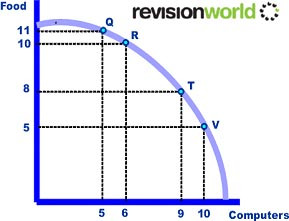There are a number of types of unemployment:
Structural unemployment
- Structural unemployment occurs when the economy changes and industries die out
- Training is needed to give the unemployed workers new skills
Cyclical unemployment
- Cyclical unemployment is caused by the business cycle
Frictional unemployment
- Frictional unemployment is caused when people are temporarily out of work as they are moving jobs
Causes & Consequences
Unemployment is caused by demand and supply side factors.
- On the demand side if the demand curve shifts inwards unemployment will rise
- Supply side factors such as an excess of supply of workers also means unemployment will increase
Effects of Unemployment
On an individual level unemployment reduces the level of income that an individual earns. As their income has been reduced consumption also reduces as they pay for necessities rather than luxuries.
- Goods that are income elastic will be consumed less
- Quality of life will be reduced for the unemployed worker
- Workers may become discouraged and give up searching for jobs becoming part of the long term structural unemployment in the UK
- Unemployment can have significance effects on the performance of the economy as a whole
The effects are most marked due to long terms unemployment. If there is unemployment in the economy resources are not being used effectively and the economy will be operating below any points on the PPF curve.
If unemployment rates are rising their will be a negative impact on economic growth potential. Consumption is likely to fall as consumers will have had a decrease in income levels.
Government spending will increase as the government will be responsible for benefit payments. Taxation levels will decrease as less people are in work and therefore paying taxes.
Unemployment & PPF
- Unemployment means that scarce economic resources are being wasted reducing the long run potential of the economy
- Where there are high levels of unemployment an economy will be operating inside the perimeters of its PPF

Unemployment & Aggregate Demand / Aggregate Supply
As Aggregate demand (AD) increases unemployment will decrease.
Supply side policies can be used to increase aggregate supply in the economy and thereby reduce the level of unemployment
However if the growth in the level of aggregate demand is less than the underlying trend growth in output unemployment is likely to occur
Policies
A number of policies can be implemented to increase market flexibility and reduce unemployment. Policies can be implemented on the supply side and the demand side by the government
Supply side policies
Supply side policies include:
- Reducing the occupational mobility of labour – this can be through providing training for the unemployed, increasing the availability and quality of education and providing incentives for people to work
Demand side policies
- Employment subsidies can be used by the government to encourage businesses to give jobs to the long term unemployed
Natural Rate of Unemployment
Hypothesis
The natural rate of unemployment recognizes that there will always be some level of unemployment in an economy. At the natural rate all unemployment will be voluntary. This is the employment rate when the economy is operating at full employment
Determinants of the natural rate
The natural rate is determined by the interaction of the demand for labour and the supply of labour. At the equilibrium wage rate all people who want a job can get a job.
However at this wage rate their will be some people who choose not to work. The natural rate of unemployment is determined by:
- Value of welfare benefits
- Trade union power
- Taxation system
- Migration of labour
- Social factors
Natural rate of unemployment & policy
If governments want to reduce the natural rate of unemployment they need to concentrate on supply side policies. If the benefits system is relatively high in a country it will cause less people to want to work.
